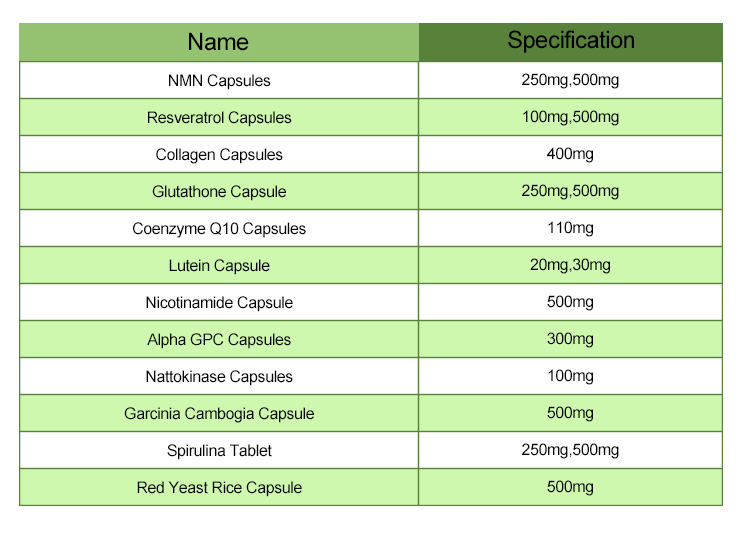Lutein capsules typically contain the following basic components:
Lutein: Lutein is a carotenoid, a type of pigment found in various fruits and vegetables, particularly in leafy greens like kale, spinach, and collard greens. It’s known for its antioxidant properties and is beneficial for eye health, particularly in reducing the risk of age-related macular degeneration and cataracts.
Zeaxanthin: Often found alongside lutein, zeaxanthin is another carotenoid that contributes to eye health. Like lutein, it acts as an antioxidant and helps protect the eyes from harmful blue light.
Capsule Shell: The shell of the capsule can be made from gelatin (typically derived from animal sources) or a vegetarian alternative like cellulose or starch. This shell holds the active ingredients (lutein and zeaxanthin) and any other additives or fillers.
Fillers and Binders: These are substances added to the capsule to help maintain its shape, stability, and to ensure the proper dosage of the active ingredients. Common fillers and binders include cellulose, silica, or magnesium stearate.

Antioxidants: Sometimes, additional antioxidants may be included in the formulation to enhance the overall antioxidant capacity of the supplement. Examples of antioxidants commonly added to lutein capsules include vitamin C, vitamin E, or selenium.
Stabilizers and Preservatives: These are added to prevent degradation of the active ingredients and to extend the shelf life of the capsules. Common stabilizers and preservatives include mixed tocopherols (forms of vitamin E) or rosemary extract.
Other Ingredients: Depending on the manufacturer and specific formulation, lutein capsules may contain other ingredients such as additional vitamins, minerals, or herbal extracts that support eye health or enhance the absorption of lutein and zeaxanthin.
It’s important to note that the exact composition of lutein capsules can vary depending on the brand and specific formulation. Always read the label carefully and consult with a healthcare professional before starting any new supplement regimen.
The application of Lutein Capsule
Lutein is a type of carotenoid antioxidant found in many fruits and vegetables, particularly in dark, leafy greens like spinach, kale, and collard greens. Lutein is well-known for its role in supporting eye health, specifically in reducing the risk of age-related macular degeneration (AMD) and cataracts. Lutein is also believed to have benefits for skin health and cognitive function.
Lutein capsules, commonly available as dietary supplements, offer a convenient way to incorporate this nutrient into one’s diet. Here are some of the potential benefits and applications of lutein capsules:
Eye Health: Lutein is a major component of the macula, the part of the eye responsible for central vision. It acts as a filter for harmful high-energy blue light and helps protect the eyes from oxidative damage caused by free radicals. Taking lutein supplements may help maintain healthy vision and reduce the risk of AMD and cataracts, particularly in older adults.
Skin Health: Lutein’s antioxidant properties extend to the skin, where it can help protect against damage from UV radiation and other environmental factors. Some research suggests that lutein may help improve skin hydration, elasticity, and overall appearance. Incorporating lutein capsules into your daily routine may contribute to healthier, more radiant skin.
Cognitive Function: While more research is needed, some studies suggest that lutein may play a role in supporting cognitive function and reducing the risk of cognitive decline with age. Lutein is present in the brain, particularly in regions associated with learning and memory. By protecting against oxidative stress and inflammation, lutein may help maintain brain health and cognitive abilities.

Heart Health: Lutein’s antioxidant properties may also benefit cardiovascular health by reducing inflammation and oxidative stress, which are risk factors for heart disease. Some research suggests that lutein may help lower blood pressure and improve cholesterol levels, though more studies are needed to confirm these effects.
Overall Well-being: Beyond its specific benefits for eye, skin, and brain health, lutein may contribute to overall well-being by supporting the body’s antioxidant defenses and reducing the risk of chronic diseases associated with oxidative stress and inflammation.
When considering lutein supplementation, it’s essential to consult with a healthcare professional, especially if you have any underlying health conditions or are taking medications. While lutein is generally considered safe, excessive intake may lead to adverse effects in some individuals. Additionally, obtaining nutrients from a balanced diet rich in fruits and vegetables is always preferable to relying solely on supplements.
